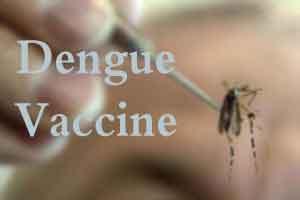- Home
- Editorial
- News
- Practice Guidelines
- Anesthesiology Guidelines
- Cancer Guidelines
- Cardiac Sciences Guidelines
- Critical Care Guidelines
- Dentistry Guidelines
- Dermatology Guidelines
- Diabetes and Endo Guidelines
- Diagnostics Guidelines
- ENT Guidelines
- Featured Practice Guidelines
- Gastroenterology Guidelines
- Geriatrics Guidelines
- Medicine Guidelines
- Nephrology Guidelines
- Neurosciences Guidelines
- Obs and Gynae Guidelines
- Ophthalmology Guidelines
- Orthopaedics Guidelines
- Paediatrics Guidelines
- Psychiatry Guidelines
- Pulmonology Guidelines
- Radiology Guidelines
- Surgery Guidelines
- Urology Guidelines
WHO recommendation for use of New dengue vaccine

The World Health Organization (WHO) in Geneva, Switzerland, forbade the implementation of the world’s first dengue vaccine and recommended only to be used in people who have previously been exposed to the disease.
The vaccine given to a dengue patient who has never been infected before can cause vulnerable to serious infection. The new recommendation, announced by WHO’s Strategic Advisory Group of Experts (SAGE) on Immunization, is in compliance with the warning given one year earlier by the Sanofi Pasteurin 2017.
The company had warned in November that Dengvaxia, the world’s sole licensed vaccine against dengue,could increase the risk of severe dengue in some cases in people who had not been previously exposed to the disease. The new guidelines mean that the vaccine can’t be widely used.
“We have now clear information that the vaccine needs to be dealt with in a much safer way by using it exclusively in people already infected with dengue before,” Alejandro Cravioto, Chair of the WHO’s Strategic Advisory Group of Experts (SAGE) on Immunization, told reporters.
“It requires for the people to be tested through a system that is not currently available but that we feel will be developed in the next years,” he said.
Sanofi stated that it is confident in Dengvaxia’s safety and proven potential to reduce dengue disease burden in endemic countries. Sanofi also stated that it would continue to work with the international public health community and endemic countries, to ensure the best usage of the vaccine.
The Philippines has already suspended the use of the dengue vaccine in 2017 and demanded the company reimburse the $70 million the country spent to vaccinate 830,000 children—and that it cover medical expenses for children who develop severe disease.
Dengue is the most frequent and rapidly spreading mosquito-borne virus. The first dengue vaccine, CYD-TDV (Dengvaxia®) is currently licensed in twenty countries.There is no specific cure for dengue, and apart from Dengvaxia, no other licensed vaccines exist.

Disclaimer: This site is primarily intended for healthcare professionals. Any content/information on this website does not replace the advice of medical and/or health professionals and should not be construed as medical/diagnostic advice/endorsement or prescription. Use of this site is subject to our terms of use, privacy policy, advertisement policy. © 2020 Minerva Medical Treatment Pvt Ltd